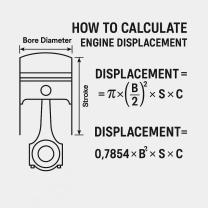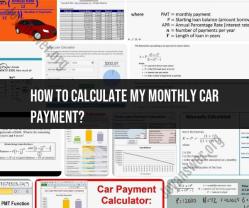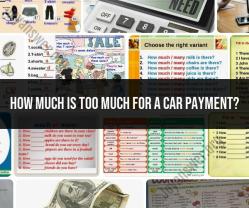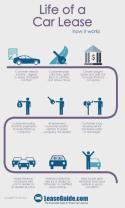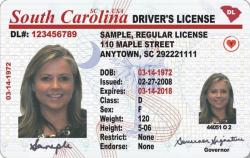Can you buy a car with bad credit?
Yes, it is possible to buy a car with bad credit, but it can be more challenging and may come with certain limitations and considerations. Bad credit typically means you have a low credit score, which can result from a history of late payments, missed payments, high levels of debt, or other financial issues. Here are some tips and considerations for buying a car with bad credit:
Know Your Credit Score: Before you start the car-buying process, obtain a copy of your credit report and check your credit score. This will help you understand how bad your credit situation is and what lenders may see when you apply for a loan.
Set a Realistic Budget: Determine how much you can afford to spend on a car. Consider not only the purchase price but also ongoing costs like insurance, maintenance, and fuel.
Improve Your Credit if Possible: While it may take time, taking steps to improve your credit can lead to better loan terms. Paying down outstanding debt, making on-time payments, and disputing any inaccuracies on your credit report can help.
Save for a Larger Down Payment: A larger down payment can make it easier to secure a car loan with bad credit. It reduces the amount you need to borrow and shows lenders that you're committed to the purchase.
Shop for the Right Lender: Some lenders specialize in working with individuals who have bad credit. These may include subprime lenders and buy-here-pay-here dealerships. Compare offers from multiple lenders to find the best terms.
Consider a Co-Signer: A co-signer with good credit can improve your chances of getting approved for a loan and may help you secure more favorable interest rates.
Research the Vehicle: Make sure the car you're considering is reliable and fits your needs. Avoid high-maintenance or luxury cars, as they can be more costly to own.
Understand Interest Rates: With bad credit, you're likely to face higher interest rates. Be prepared for this and make sure the interest rate is within your budget.
Read the Loan Terms Carefully: Pay attention to the terms of the loan, including the length of the loan and any fees or penalties. Ensure you can meet the repayment schedule.
Avoid Unnecessary Add-Ons: Some dealers may try to sell you additional features, warranties, or insurance. Carefully evaluate whether these are essential, as they can increase the overall cost of the car.
Negotiate: Don't be afraid to negotiate the price of the car and the terms of the loan. You may be able to secure a better deal by being a savvy negotiator.
Be Cautious of Buy-Here-Pay-Here Dealerships: While they may be an option for those with very bad credit, these dealerships often charge high interest rates and may have less reputable practices. Do your due diligence and read reviews if you consider this route.
Buying a car with bad credit is possible, but it's important to be well-informed and make choices that are financially responsible. Be cautious about predatory lending practices and seek financial advice if needed to ensure you make a decision that aligns with your financial goals and needs.
Buying a Car with Bad Credit: Steps and Solutions
Navigating the car buying process with bad credit can be challenging, but it's not an insurmountable obstacle. With careful planning, strategic decision-making, and a proactive approach, you can increase your chances of securing a car loan and finding a reliable vehicle that suits your needs.
Steps to Buying a Car with Bad Credit:
Know Your Credit Score: Understanding your credit score is essential for setting realistic expectations and determining your loan eligibility. Obtain a copy of your credit report from AnnualCreditReport.com to review your credit history, identify any potential errors, and assess your overall creditworthiness.
Save for a Down Payment: A substantial down payment can significantly improve your chances of loan approval and reduce your loan amount, leading to lower monthly payments. Prioritize saving as much as possible to demonstrate your financial responsibility and ability to contribute to the vehicle's purchase price.
Shop Around for Interest Rates: Don't settle for the first loan offer you receive. Compare interest rates from various lenders, including banks, credit unions, and online lenders. Utilize online tools like LendingTree to compare quotes and find the most competitive rates for your credit profile.
Consider a Cosigner: If your credit score falls below the lender's requirements, consider enlisting a cosigner with good credit. A cosigner essentially guarantees the loan repayment, enhancing your loan eligibility and potentially securing lower interest rates.
Be Prepared for a Larger Down Payment: Lenders may require a larger down payment from borrowers with bad credit to mitigate their financial risk. Be prepared to make a significant down payment to increase your chances of loan approval and reduce your overall loan burden.
Solutions for Buying a Car with Bad Credit:
Consider a Used Car: Used cars typically offer lower upfront costs and lower monthly payments compared to new cars, allowing you to stretch your budget and potentially afford a larger down payment.
Explore Subprime Lenders: Subprime lenders specialize in providing loans to borrowers with less-than-perfect credit. While their interest rates may be higher than traditional lenders, they may be your best option if your credit history is challenging.
Seek Credit Counseling: Credit counseling can provide valuable guidance and support in improving your credit score. A credit counselor can help you create a budget, develop a debt repayment plan, and identify strategies to enhance your creditworthiness.
Car Purchases with Poor Credit: Your Options
Despite having bad credit, you still have options for purchasing a car. Here are some alternatives to consider:
Private Seller: Purchasing from a private seller may offer lower prices compared to dealerships. However, you'll need to conduct thorough inspections and research the vehicle's history to ensure its reliability.
Leasing a Car: Leasing involves paying monthly installments for the right to use a car for a predetermined period. While lease payments are typically higher than loan payments, you may not need to make a large down payment.
Buy-Here-Pay-Here Dealers: Buy-here-pay-here (BHPH) dealers specialize in selling cars to borrowers with bad credit. They may require a smaller down payment and may not check your credit score as extensively. However, BHPH dealers often charge higher interest rates.
Overcoming Credit Challenges to Secure an Auto Loan
Enhancing your creditworthiness and increasing your chances of loan approval requires a commitment to improving your financial standing. Here are some strategies to overcome credit challenges:
Obtain Your Credit Report: Regularly reviewing your credit report allows you to identify and address any errors or inaccuracies. Dispute any incorrect information with the respective credit bureaus to ensure your report accurately reflects your credit history.
Reduce Debt-to-Income Ratio: A high debt-to-income (DTI) ratio indicates that a significant portion of your income is allocated to debt payments. Reducing your DTI by paying down existing debts can improve your creditworthiness and make you more attractive to lenders.
Create a Realistic Budget: Develop a comprehensive budget that outlines your income and expenses. Track your spending closely and make adjustments as needed to ensure you can meet your financial obligations, including potential car loan payments.
Establish a Consistent Payment History: On-time payments are crucial for building a strong credit history. Make all your bill payments, including rent, utilities, and credit card statements, on time each month to demonstrate your financial responsibility.
Limit Credit Applications: Each time you apply for credit, a hard inquiry is recorded on your credit report, which can temporarily lower your score. Avoid applying for multiple loans or credit cards within a short period to minimize the impact on your credit score.
Explore Cosigner Options: If your credit score is still low, having a cosigner with good credit can significantly improve your chances of loan approval. The co


